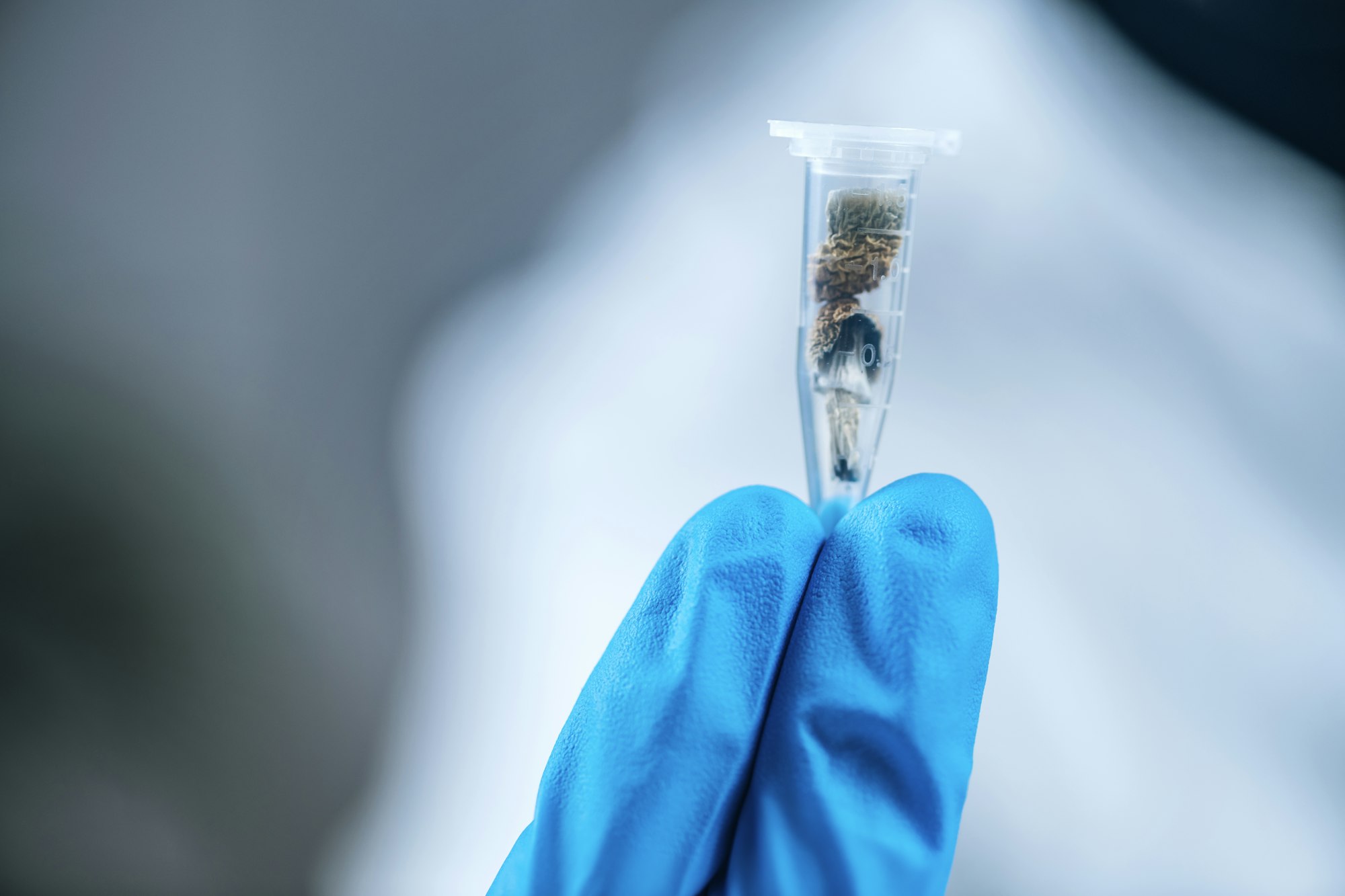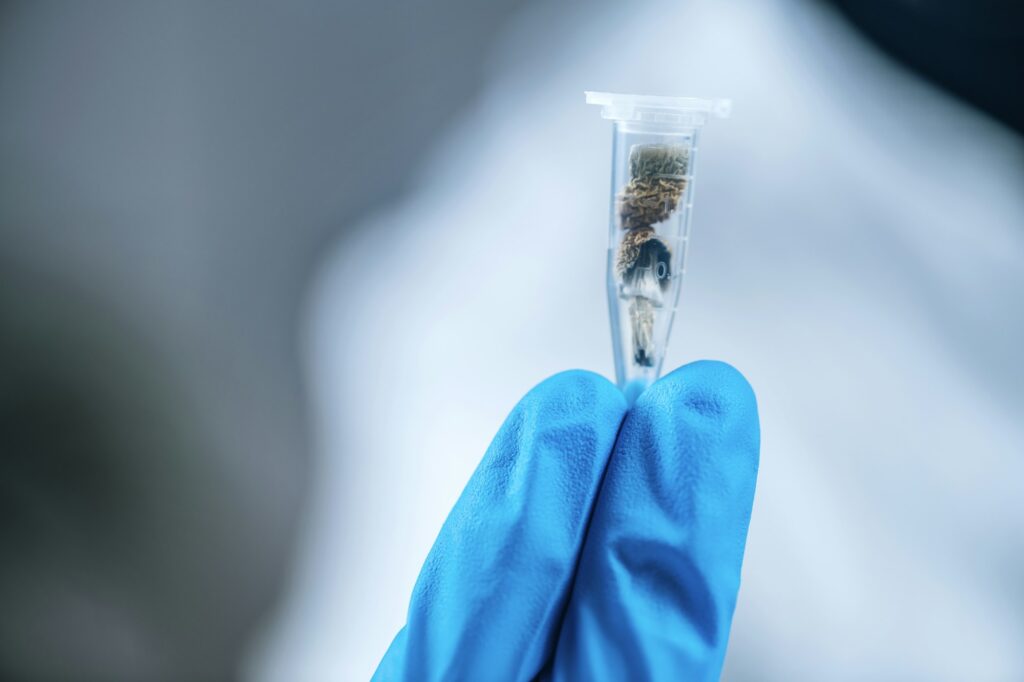

Psychedelics are a category of hallucinogenic substances that modify perception, mood, and cognitive functions. These compounds exist in both natural and synthetic forms, with common examples including LSD, psilocybin (found in certain mushrooms), DMT, and mescaline. Psychedelics primarily affect the brain by interacting with serotonin receptors, resulting in significant alterations to consciousness and sensory experiences.
Historically, these substances have been utilized in various cultural and spiritual practices for centuries. In recent years, there has been growing scientific interest in their potential therapeutic applications for mental health disorders such as depression, anxiety, and post-traumatic stress disorder (PTSD). It is crucial to recognize that psychedelics can induce powerful and unpredictable effects, necessitating a cautious and respectful approach to their use.
While some individuals report transformative and positive experiences with psychedelics, others may encounter overwhelming and distressing effects. Furthermore, psychedelics are classified as illegal substances in numerous countries, and their possession or use may result in legal repercussions. Consequently, it is essential to thoroughly educate oneself about the potential risks and benefits associated with psychedelics before contemplating their use.
This includes researching the specific substance, understanding its effects, and considering potential interactions with other medications or existing health conditions to make well-informed decisions regarding psychedelic use.
The setting and environment in which psychedelics are consumed play a crucial role in shaping the overall experience. Creating a safe, comfortable, and supportive setting can help minimize the risk of a challenging or negative trip and maximize the potential for a positive and transformative experience. It’s essential to choose a setting where you feel relaxed and at ease, whether it’s at home, in nature, or in a trusted and familiar environment.
The physical space should be clean, organized, and free of any potential hazards or distractions. This will help create a sense of calm and focus, allowing you to fully immerse yourself in the experience.
The social environment can also significantly impact the psychedelic experience. Being surrounded by trusted friends or supportive individuals who are experienced with psychedelics can provide a sense of security and reassurance. On the other hand, being in the presence of unfamiliar or unsupportive individuals can contribute to feelings of anxiety or discomfort. It’s crucial to carefully consider who you choose to be with during a psychedelic experience and ensure that they are understanding, non-judgmental, and capable of providing emotional support if needed.
Preparing mentally and emotionally for a psychedelic experience is essential for maximizing the potential benefits and minimizing the risk of a challenging trip. This involves cultivating a mindset of openness, curiosity, and self-reflection, as well as addressing any underlying mental or emotional issues that may impact the experience. Engaging in practices such as meditation, mindfulness, and self-inquiry can help cultivate a sense of inner calm and emotional resilience, which can be beneficial during the psychedelic experience.
It’s also important to approach psychedelics with a sense of intention and purpose. Reflecting on what you hope to gain from the experience, whether it’s gaining insight into a specific issue, exploring creativity, or seeking personal growth, can help guide the experience in a meaningful direction. Additionally, addressing any unresolved emotional issues or trauma through therapy or counseling before engaging in a psychedelic experience can help reduce the risk of overwhelming emotional responses during the trip.
| Medication | Dosage | Timing |
|---|---|---|
| Aspirin | 325 mg | Every 4-6 hours |
| Amoxicillin | 500 mg | Every 8 hours |
| Insulin | Varies | Before meals |
The dosage and timing of psychedelic consumption are critical factors that can significantly impact the overall experience. Different psychedelics have varying potency levels, and individual sensitivity to these substances can also vary widely. It’s important to start with a low to moderate dose, especially for first-time users, to gauge individual sensitivity and tolerance.
Taking too high of a dose can lead to overwhelming effects that may be difficult to manage. The timing of psychedelic consumption is also important to consider. Factors such as physical health, mental state, and external responsibilities should be taken into account when planning a psychedelic experience.
It’s important to choose a time when you are feeling physically well, mentally stable, and free from any pressing obligations or responsibilities. Engaging in a psychedelic experience during times of high stress or emotional turmoil can increase the risk of having a challenging trip.
Integration and aftercare are essential components of the psychedelic experience that often receive less attention than the actual consumption of the substance. Integration involves reflecting on and incorporating insights gained from the psychedelic experience into one’s daily life. This may involve journaling, creative expression, or discussing the experience with a trusted friend or therapist.
Integrating the lessons learned from the psychedelic experience can help solidify personal growth and transformation. Aftercare involves taking care of oneself physically, emotionally, and mentally following a psychedelic experience. This may involve getting plenty of rest, engaging in self-care practices such as meditation or yoga, and nourishing the body with healthy foods.
It’s also important to process any lingering emotions or thoughts that may arise after the experience and seek support if needed. Engaging in aftercare practices can help facilitate a smooth transition back to everyday life and promote overall well-being.

Harm reduction strategies are crucial for minimizing the potential risks associated with psychedelic use and promoting safe and responsible consumption. Some essential harm reduction strategies include testing substances for purity and potency using drug testing kits, starting with a low dose to gauge individual sensitivity, and having a trusted friend or sitter present during the experience to provide support if needed.
It’s also important to be mindful of potential drug interactions with other medications or substances and to avoid driving or operating heavy machinery while under the influence of psychedelics. This can help prevent accidents and ensure a safer experience.
Practicing harm reduction also involves being aware of one’s mental state and emotional well-being before engaging in a psychedelic experience. If feeling emotionally vulnerable or unstable, it may be best to postpone the experience until feeling more grounded and resilient.
Engaging in harm reduction practices can help minimize the potential for adverse effects and promote a safer and more positive psychedelic experience. By taking these precautions, individuals can reduce the risks associated with psychedelic use and have a more enjoyable and transformative experience.
Seeking professional guidance from therapists, counselors, or other mental health professionals can provide valuable support before, during, and after a psychedelic experience. A trained professional can help address any underlying mental health issues or emotional concerns that may impact the psychedelic experience. They can also provide guidance on how to prepare mentally and emotionally for the experience, as well as offer support for integrating insights gained from the experience into one’s daily life.
In recent years, there has been growing interest in psychedelic-assisted therapy as a potential treatment for mental health conditions such as depression, anxiety, and PTSD. Trained therapists who specialize in this approach can provide a safe and supportive environment for engaging in a therapeutic psychedelic experience. Seeking professional guidance can help ensure that the psychedelic experience is approached in a responsible and beneficial manner, with proper support and guidance throughout the process.
In conclusion, understanding psychedelics involves educating oneself about their effects, risks, and potential benefits. Creating a safe setting and environment for consuming psychedelics is crucial for shaping the overall experience. Mental and emotional preparation can help maximize the potential benefits of psychedelics while minimizing the risk of challenging experiences.
Paying attention to dosage and timing is important for ensuring a safe and manageable psychedelic experience. Integration and aftercare are essential components for solidifying personal growth and well-being following a psychedelic experience. Engaging in harm reduction strategies can help minimize potential risks associated with psychedelic use.
Seeking professional guidance can provide valuable support before, during, and after a psychedelic experience. With careful consideration and responsible practices, psychedelics have the potential to offer transformative experiences that promote personal growth, healing, and well-being.
For more information on the therapeutic benefits of psychedelics, check out this article on the therapeutic benefits of cannabis for working adults. It discusses how cannabis can be used as a therapeutic tool for managing stress and improving overall well-being.
Psychedelics are a class of hallucinogenic drugs that can alter a person’s perception, mood, and cognitive processes. Common psychedelics include LSD, psilocybin (magic mushrooms), and DMT.
Psychedelics can have a range of potential risks, including the possibility of experiencing a “bad trip,” which can lead to feelings of anxiety, paranoia, and confusion. There is also a risk of experiencing hallucinations that can be distressing. In some cases, psychedelics can exacerbate underlying mental health conditions.
Some safety guidelines for using psychedelics include: being in a safe and comfortable environment, having a trusted and sober trip sitter present, starting with a low dose, and avoiding mixing psychedelics with other substances. It’s also important to be aware of the legal status of psychedelics in your area and to consider the potential legal consequences of using them.
Yes, there are certain medical conditions and medications that could interact with psychedelics. It’s important to consult with a healthcare professional before using psychedelics, especially if you have a history of mental health issues, heart conditions, or are taking any medications.
Psychedelics are not considered to be physically addictive, and they do not typically lead to compulsive drug-seeking behavior. However, some individuals may develop a psychological dependence on psychedelics, especially if they use them as a way to escape from reality or cope with emotional issues.